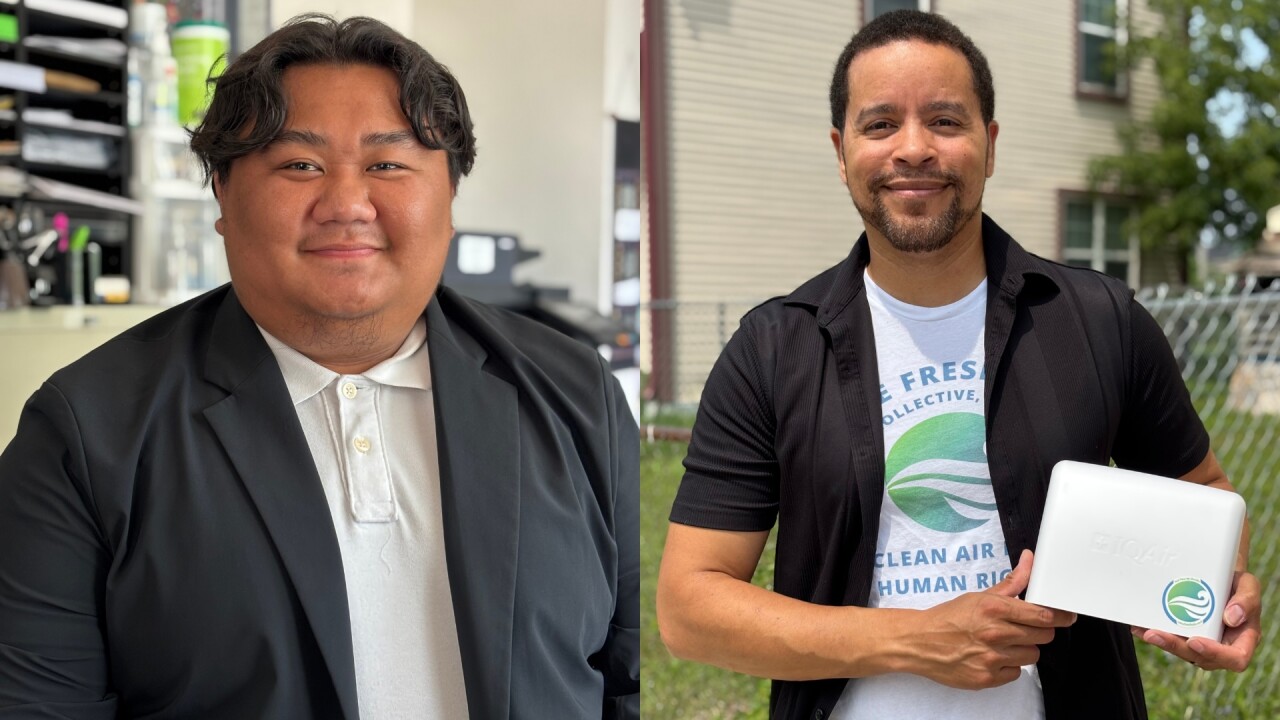MILWAUKEE — A local resident and air quality enthusiast weigh in on the local impact of wildfires in Canada and why low air quality has become a recurring part of summer in recent years.
“I’ve been having this cough that I can’t get rid of,” said Milwaukee resident, Augustin Khey.
Oftentimes, vulnerable groups like the elderly or people who have asthma are most affected by poor air quality; however, Augustin Khey is 21 years old, has no pre-existing medical conditions, and says he's had a cough and sore throat ever since the smoke rolled into Milwaukee.
“It’s impacted my ability to enjoy life outside and really like enjoy family activities, even just like going on a hike with my mom,” said Khey.
As someone who grew up in Milwaukee, he says he doesn’t remember having smoky summers during his upbringing.
Watch: Summer smoke takes a toll on Milwaukee resident’s health
“I think it’s more recent because when I was a kid and we would go outside it was like a lot more clear blue skies instead of now it’s almost, it looks like very cloudy but in fact it’s not even the clouds it’s just a lot of smoke,” said Khey.
Over the last couple years the wildfires in Canada have caused poor air quality around the Midwest and beyond. 2023 was a record-breaking year where more than 37 million acres of land burned in Canada.
“This all has to do with climate change. As the temperatures rise and it’s getting dryer, well, there’s a lot of trees and a lot of forests in Canada and it’s more prone to then catch fire,” said Langston Verdin.
Verdin is the founder and co-executive director of the MKE FreshAir Collective, an organization that monitors air quality and notifies people through the AirVisual app.
“They’ve been having some devastating wildfires in Canada, and unfortunately here in Wisconsin the wind is blowing it right down to us. So, you know, we are getting the negative effects of that wildfire smoke,” said Verdin.
He says that because of changes in climate, we can expect to see more hazy summers.
“I think it’s something we should expect, which tells us we should start planning ahead to protect ourselves,” said Verdin.
Ways to prepare and protect yourself include:
- Staying indoors
- Wearing a mask while outside
- Close doors and windows
- Use air purifiers
- Use air conditioning
- Track air quality
More information on the connection between wildfires and climate change can be found on the National Oceanic and Atmospheric Administration’s website.
It’s about time to watch on your time. Stream local news and weather 24/7 by searching for “TMJ4” on your device.
Available for download on Roku, Apple TV, Amazon Fire TV, and more.






